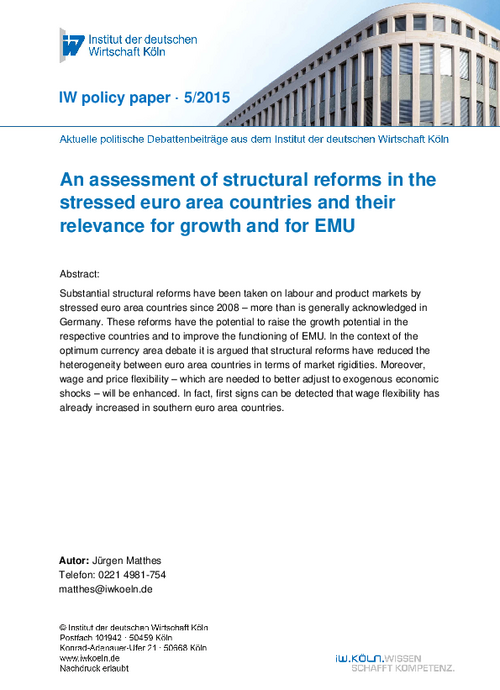Substantial structural reforms have been taken on labour and product markets by stressed euro area countries since 2008 – more than is generally acknowledged in Germany.

An assessment of structural reforms in the stressed euro area countries and their relevance for growth and for EMU

Substantial structural reforms have been taken on labour and product markets by stressed euro area countries since 2008 – more than is generally acknowledged in Germany.
These reforms have the potential to raise the growth potential in the respective countries and to improve the functioning of EMU. In the context of the optimum currency area debate it is argued that structural reforms have reduced the heterogeneity between euro area countries in terms of market rigidities. Moreover, wage and price flexibility – which are needed to better adjust to exogenous economic shocks – will be enhanced. In fact, first signs can be detected that wage flexibility has already increased in southern euro area countries.

An assessment of structural reforms in the stressed euro area countries and their relevance for growth and for EMU

More on the topic
Not so Different?: Dependency of the German and Italian Industry on China Intermediate Inputs
On average the German and Italian industry display a very similar intermediate input dependence on China, whether accounting for domestic inputs or not.
IW
China’s Trade Surplus – Implications for the World and for Europe
China’s merchandise trade surplus has reached an all-time high and is likely to rise further. A key driver appears to be a policy push to further bolster Chinese domestic manufacturing production, implying the danger of significant overcapacities.
IW